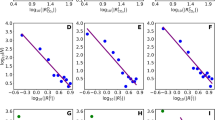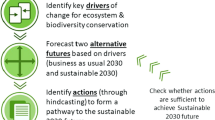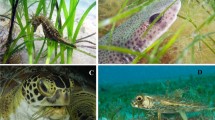Abstract
Reproducibility is a persistent concern in science and recently attracts considerable attention in assessing biological responses to ocean acidification. Here we track the reproducibility of the harmful effects of ocean acidification on calcification of shell-building organisms by conducting a meta-analysis of 373 studies across 24 years. The pioneering studies tended to report large negative effects, but as other researchers assimilated this research into understanding their biological systems, the size of negative effects declined. Such declines represent a scientific process by which discoveries are initially assimilated and their limitations are subsequently explored. We suggest that scientific novelties can polarize a discipline where researchers fail to distinguish between different motivations for testing a phenomenon, that is, its existence (theory proposal) versus its influence within ever-widening contexts (theory development). Where context dependency is high, the lack of reproducibility may not represent a crisis but a part of theory development and eventual gravitation towards a consensus position.




Similar content being viewed by others
Data availability
The datasets analysed in the current study are available in the Supplementary Information.
Code availability
The figures were created and analysed using a commercial software GraphPad Prism v.9.0.0, and the meta-analysis was conducted using an open-source software R version 4.3.0 with the metafor package version 4.2-0. The codes used to reproduce the meta-analysis are presented in the Supplementary Information.
References
Schooler, J. Unpublished results hide the decline effect. Nature 470, 437 (2011).
Fang, F. C. & Casadevall, A. Competitive science: is competition ruining science? Infect. Immun. 83, 1229–1233 (2015).
Clements, J. C., Sundin, J., Clark, T. D. & Jutfelt, F. Meta-analysis reveals an extreme ‘decline effect’ in the impacts of ocean acidification on fish behavior. PLoS Biol. 20, e3001511 (2022).
Gattuso, J. P., Frankignoulle, M., Bourge, I., Romaine, S. & Buddemeier, R. W. Effect of calcium carbonate saturation of seawater on coral calcification. Glob. Planet. Change 18, 37–46 (1998).
Riebesell, U. et al. Reduced calcification of marine plankton in response to increased atmospheric CO2. Nature 407, 364–367 (2000).
Zondervan, I., Zeebe, R. E., Rost, B. & Riebesell, U. Decreasing marine biogenic calcification: a negative feedback on rising atmospheric \(p_{{\mathrm{co}}_2}\). Glob. Biogeochem. Cycles 15, 507–516 (2001).
Feely, R. A. et al. Impact of anthropogenic CO2 on the CaCO3 system in the oceans. Science 305, 362–366 (2004).
Orr, J. C. et al. Anthropogenic ocean acidification over the twenty-first century and its impact on calcifying organisms. Nature 437, 681–686 (2005).
Leung, J. Y. S., Zhang, S. & Connell, S. D. Is ocean acidification really a threat to marine calcifiers? A systematic review and meta-analysis of 980+ studies spanning two decades. Small 18, 2107407 (2022).
Leung, J. Y. S. et al. Calcifiers can adjust shell building at the nanoscale to resist ocean acidification. Small 16, 2003186 (2020).
Cornwall, C. E. et al. Resistance of corals and coralline algae to ocean acidification: physiological control of calcification under natural pH variability. Proc. R. Soc. B 285, 20181168 (2018).
Rajan, K. C., Meng, Y., Yu, Z., Roberts, S. B. & Vengatesen, T. Oyster biomineralization under ocean acidification: from genes to shell. Glob. Change Biol. 27, 3779–3797 (2021).
Liu, Y., Eagle, R. A., Aciego, S. M., Gilmore, R. E. & Ries, J. B. A coastal coccolithophore maintains pH homeostasis and switches carbon sources in response to ocean acidification. Nat. Commun. 9, 2857 (2018).
Wahl, M. et al. Macroalgae may mitigate ocean acidification effects on mussel calcification by increasing pH and its fluctuations. Limnol. Oceanogr. 63, 3–21 (2018).
Lau, J., Schmid, C. H. & Chalmers, T. C. Cumulative meta-analysis of clinical trials builds evidence for exemplary medical care. J. Clin. Epidemiol. 48, 45–57 (1995).
Pietschnig, J., Voracek, M. & Formann, A. K. Mozart effect—Shmozart effect: a meta-analysis. Intelligence 38, 314–323 (2010).
Pietschnig, J., Penke, L., Wicherts, J. M., Zeiler, M. & Voracek, M. Meta-analysis of associations between human brain volume and intelligence differences: how strong are they and what do they mean? Neurosci. Biobehav. Rev. 57, 411–432 (2015).
Connell, S. D. et al. How ocean acidification can benefit calcifiers. Curr. Biol. 27, R95–R96 (2017).
Goldenberg, S. U. et al. Ecological complexity buffers the impacts of future climate on marine consumers. Nat. Clim. Change 8, 229–233 (2018).
Leung, J. Y. S. et al. How calorie-rich food could help marine calcifiers in a CO2-rich future. Proc. R. Soc. B 286, 20190757 (2019).
Cornwall, C. E. et al. Understanding coralline algal responses to ocean acidification: meta-analysis and synthesis. Glob. Change Biol. 28, 362–374 (2022).
Cornwall, C. E. & Hurd, C. L. Experimental design in ocean acidification research: problems and solutions. ICES J. Mar. Sci. 73, 572–581 (2015).
Cornwall, C. E. et al. Global declines in coral reef calcium carbonate production under ocean acidification and warming. Proc. Natl Acad. Sci. USA 118, e2015265118 (2021).
Mlinarić, A., Horvat, M. & Smolčić, V. S. Dealing with the positive publication bias: why you should really publish your negative results. Biochem. Med. 27, 030201 (2017).
Browman, H. I. Applying organized scepticism to ocean acidification research. ICES J. Mar. Sci. 73, 529–536 (2016).
Leung, J. Y. S., Harvey, B. P. & Russell, B. D. Editorial: fitness of marine calcifiers in the future acidifying ocean. Front. Mar. Sci. 8, 752635 (2021).
McPherson, M., Smith-Lovin, L. & Cook, J. M. Birds of a feather: homophily in social networks. Annu. Rev. Socio 27, 415–444 (2001).
Norberg, J., Blenckner, T., Cornell, S. E., Petchey, O. L. & Hillebrand, H. Failures to disagree are essential for environmental science to effectively influence policy development. Ecol. Lett. 25, 1075–1093 (2022).
Kahneman, D. & Klein, G. Conditions for intuitive expertise: a failure to disagree. Am. Psychol. 64, 515–526 (2009).
Chamberlain, S. A., Bronstein, J. L. & Rudgers, J. A. How context dependent are species interactions? Ecol. Lett. 17, 881–890 (2014).
Shanteau, J. How much information does an expert use? Is it relevant? Acta Psychol. 81, 75–86 (1992).
Protzko, J. et al. 2020. High replicability of newly-discovered social–behavioral findings is achievable. Preprint at PsyArXiv https://doi.org/10.31234/osf.io/n2a9x (2020).
Amaral, O. B. & Neves, K. Reproducibility: expect less of the scientific paper. Nature 597, 329–331 (2021).
Acknowledgements
We acknowledge the Australian Research Council grant to S.D.C. (ARC DP230101932) and the funding from the National Natural Science Foundation of China to J.Y.S.L. (42176199, 42076121, M-0163, 42211530423). We thank N. K. M. Cheung for his advice on the statistical analyses used in this study.
Author information
Authors and Affiliations
Contributions
S.D.C. and J.Y.S.L. conceived the study, interpreted the results and wrote the manuscript. J.Y.S.L. collected and analysed the data. S.D.C. provided in-depth interpretation of the data.
Corresponding authors
Ethics declarations
Competing interests
The authors declare no competing interests.
Peer review
Peer review information
Nature Climate Change thanks the anonymous reviewers for their contribution to the peer review of this work.
Additional information
Publisher’s note Springer Nature remains neutral with regard to jurisdictional claims in published maps and institutional affiliations.
Extended data
Extended Data Fig. 1 Trends in the experimental protocol used for ocean acidification research across the publication years.
The scatter plots showing the gradual increases in (a) experimental duration and (b) average sample size used for experimentation across the years. Each dot represents an observation, whereas the solid grey line represents the best fit line of linear regression.
Extended Data Fig. 2 Assessment of potential publication bias based on funnel plot asymmetry.
The funnel plot showing the relationship between effect size and standard error using Egger’s regression test (two-sided, z = –10.8, p = 2.33 × 10–27). Each dot represents an observation.
Supplementary information
Supplementary Information
Supplementary Fig. 1, Tables 1 and 2 and Methods.
Supplementary Data 1
A comprehensive dataset of the studies included in the meta-analysis.
Rights and permissions
About this article
Cite this article
Connell, S.D., Leung, J.Y.S. Reproducibility crisis and gravitation towards a consensus in ocean acidification research. Nat. Clim. Chang. 13, 1266–1271 (2023). https://doi.org/10.1038/s41558-023-01828-9
Received:
Accepted:
Published:
Issue Date:
DOI: https://doi.org/10.1038/s41558-023-01828-9
- Springer Nature Limited





